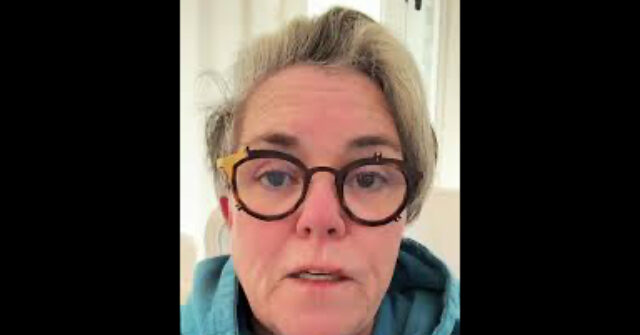In a recent TikTok video, Rosie O’Donnell expressed her outrage over President-elect Donald Trump being named Time’s 2024 Person of the Year. O’Donnell’s vehement reaction is indicative of her deep-seated frustration with both Trump and the media’s role in his political career. She did not hold back her emotions, starting her tirade with a profane dismissal of Time magazine and displaying a middle finger to the camera. O’Donnell’s strong language reflected her feelings that the recognition of Trump was not only misguided but also damaging to societal values.
O’Donnell went further by labeling Trump a “lying, rapist, criminal guy,” emphasizing her belief that he embodies characteristics that should be condemned rather than celebrated. This sentiment came shortly after a significant legal settlement involving Trump, highlighting the contentious environment surrounding his reputation. O’Donnell’s choice of words underscores a broader narrative among critics who argue that Trump’s actions and character are not only unbecoming of a leader but warrant serious scrutiny and condemnation.
A substantial part of O’Donnell’s critique was directed at mainstream media, which she accused of facilitating Trump’s rise to power rather than opposing him. She argued that instead of holding Trump accountable for his actions and statements, the media has played a role in normalizing his behavior. O’Donnell lamented that failure in journalism has significantly impacted the political landscape, positing that a more truthful portrayal of Trump would have altered public perception and potentially changed the course of his electoral success.
The notion of media complicity resonates deeply in the context of contemporary political discourse, where figures like Trump often elicit polarized reactions. O’Donnell’s accusations speak to a larger frustration with the media’s handling of political figures, suggesting that sensationalist reporting and a failure to critically engage with the facts have detrimental effects on democratic processes. This analysis highlights a disconnect between media practices and public accountability, raising questions about journalistic integrity in the face of controversial public figures.
What came through powerfully in O’Donnell’s message is her call for accountability, both for Trump and the institutions that have supported him. By asserting that the media has not done its job in justice to the situation, she highlighted the critical role that journalists play in shaping public perceptions. The normalizing of Trump, she alleges, has had significant ramifications, leading to a political climate where controversial figures can ascend unchallenged due to a lack of rigorous scrutiny.
In essence, Rosie O’Donnell’s strong stance against Trump’s recognition by Time magazine functions as a microcosm of the larger debates in American politics concerning media ethics and the responsibilities of public figures. Her video serves as a reminder of the powerful emotions and divisive opinions that continue to permeate discussions about governance and representation in the 21st century. O’Donnell’s passionate objections resonate with many who feel similarly disenfranchised and call for a re-evaluation of both media practices and political standards as the political landscape continues to evolve.

